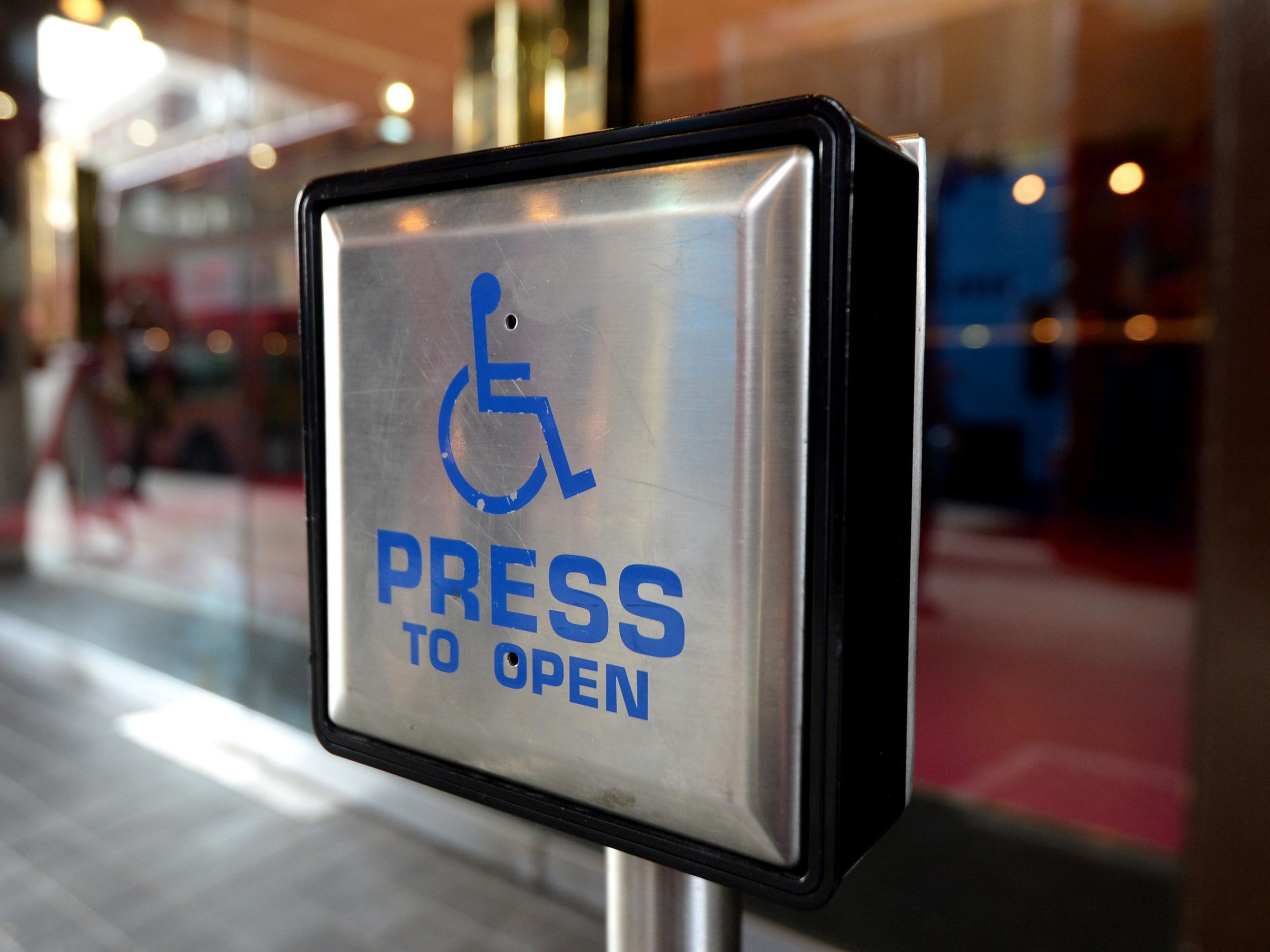Government accused of breaching UN convention in its treatment of disabled people
'The Government will claim we’re world leaders in disability rights, but actually things have gone rapidly backwards in the last 10 years,' disability organisations will tell major UN committee

Your support helps us to tell the story
From reproductive rights to climate change to Big Tech, The Independent is on the ground when the story is developing. Whether it's investigating the financials of Elon Musk's pro-Trump PAC or producing our latest documentary, 'The A Word', which shines a light on the American women fighting for reproductive rights, we know how important it is to parse out the facts from the messaging.
At such a critical moment in US history, we need reporters on the ground. Your donation allows us to keep sending journalists to speak to both sides of the story.
The Independent is trusted by Americans across the entire political spectrum. And unlike many other quality news outlets, we choose not to lock Americans out of our reporting and analysis with paywalls. We believe quality journalism should be available to everyone, paid for by those who can afford it.
Your support makes all the difference.The Government has been accused of "evading" disability rights by ignoring the recommendations of a major UN committee, in what has been described as a “continuing retrogression” of disabled people’s rights in the UK.
Disability organisations from across the country have accused ministers of ignoring questions put to it earlier this year by the UN Committee on the Rights of Persons with Disabilities, leaving disabled people to face "serious discrimination" in educational, employment and social opportunities.
The poor supply of accessible housing, the rise in the number of children educated in special schools and cuts to health and social care services, among other issues, place the UK in breach of the Convention on the Rights of Disabled People, according to evidence submitted to the committee.
The UN committee will this week hear disability groups’ observations as part of an inquiry into what steps the UK has taken to implement the convention’s recommendations, before it quizzes representatives from the UK and devolved governments in Geneva on 23 and 24 August.
In a recent report that will be submitted to the committee, UK organisation Disability Rights UK accused the Government of “dismissing” the findings and recommendations of the disability committee’s report, describing it as a “dismissal of the lived experiences, views and interests of Disabled people in the UK”.
Sue Bott, deputy CEO for Disability Rights UK and co-author of the report, told The Independent she and other researchers met disabled people across the UK as part of their evidence gathering and found that the UK was “going backwards” on disability rights.
She told of one wheelchair user who was denied available housing after being on a waiting list for six years because of the bedroom tax policy, and is now having to “crawl up the front steps into his house and haul himself up on his backside to get upstairs".
In another case, a young woman was unable to meet with researchers from Disability Rights UK because her care package had been cut and she wasn’t able to pay a carer to bring her, she said.
“The Government will claim we’re world leaders in disability rights, but actually, things have gone rapidly backwards in the last 10 years. We are a developed, rich country and here we are regressing on disability rights,” said Ms Bott.
“We’re hoping that we can engage with Government and get things back on track again, so that we really can be a leader in disability rights. There are things that we feel Government could do which could really improve lives.”
The disability organisations will highlight the lack of accessible housing, the decline in disabled children in education, cuts to health and social services, the rapidly growing use of compulsory detention and forced treatment powers contained in mental health legislation and plans to cap funding for support that allows disabled people to work. It will also raise concerns about the level of hate speech and hate crime directed towards the disabled community.
In an initial response to the report, the Government claimed it had a “long tradition of respecting human rights and continues to promote the social model of disability”.
The response continued: “The UK Government maintains its understanding of emerging ideas about disability through regular engagement with disabled people and their organisations and the sharing of information internationally.”
But referring to the Government’s submission for the latest investigation, Kamran Mallick, chief executive of Disability Rights UK, said: “Many of the Government’s answers have a tone of complacency at best and high-handed evasion at worst.
“The Government produced no evidence or detail to show how it is supporting people to lead independent lives; something it committed to when it signed the convention in 2009. It also makes grand claims about the impact of the Equality Act and the Care Act that simply don’t reflect the everyday experiences of disabled people in the UK.”
It comes after concerns were raised over the negative impact Brexit could have on disabled people in the UK. A report by Disability Rights UK seen exclusively by The Independent earlier this year warned that people with disabilities could “slide back” into nursing homes if the departure from the EU restricts the numbers of care staff coming from the bloc.
Join our commenting forum
Join thought-provoking conversations, follow other Independent readers and see their replies
Comments